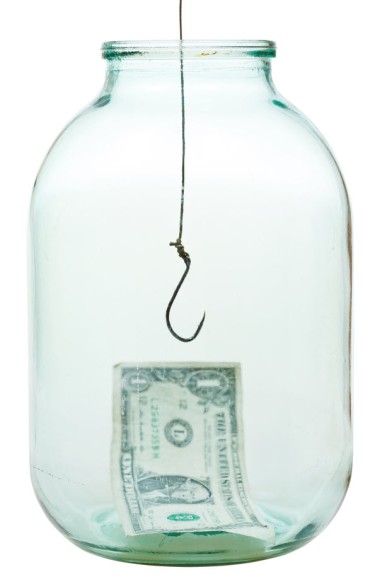Checking Weed Ground Zero - Colorado Sales Drop to Lowest in 4 Years and Cannabis Workers Down by 33%"
As the green rush swept across the United States, Colorado quickly established itself as the epicenter of the legal cannabis industry. The state's dispensaries and cultivation facilities boomed for years, bringing in millions of dollars in revenue and creating countless jobs. However, recent data reveals a sharp decline in sales and employment within the industry. With sales dropping to their lowest point in four years and a 33% decrease in cannabis-related jobs, Colorado's once-thriving weed industry has hit a critical turning point.
Colorado Sales Drop to Lowest in 4 Years
In February, medical and recreational marijuana retailers in Colorado recorded $124.8 million in sales, indicating a 3.5% decrease from January and a 14% decline from the previous year. This marks the seventh monthly drop in the past eight months, resulting in the lowest sales figure in the past four years. These statistics are sourced from data released by the Colorado Department of Revenue, signaling a significant setback for the state's cannabis industry.
For the first two months of the year, combined sales of marijuana in Colorado amounted to $254.2 million, representing a 14% drop from the corresponding period in the previous year. Specifically, adult-use sales for February generated $109.4 million, while medical cannabis transactions contributed $15.4 million to the overall total. Comparatively, January saw higher sales figures, with adult-use sales reaching $113.2 million and medical cannabis transactions totaling $16.2 million.
The most recent data on Colorado's cannabis market highlights the conclusion of a decade-long expansion in the country's most established adult-use marijuana sector. Wholesale cannabis prices have declined for a significant portion of 2022. As reported by MJBizDaily in February, total cannabis sales for 2022 in Colorado reached almost $1.8 billion, representing a significant 20.7% drop from the record high of $2.2 billion in 2021.
One-Third of the Colorado Marijuana Workforce Has Been Cut
According to a recent report, the number of cannabis jobs in Colorado has dropped by 28 percent, coinciding with headlines claiming a decrease in marijuana sales in the state. This suggests that finding employment related to marijuana is becoming increasingly difficult in Colorado.
The research reveals that dispensary sales have been weak nationwide and that commercial marijuana employment has fallen nationally for the first time since this state's adult-use cannabis industry opened for business in early 2014. And as additional states join the marijuana party, Colorado has been hammered particularly hard. It's no longer one of the leading two states for cannabis employment, according to Vangst. It isn't even among the top five.
Between February 2022 and February 2023, cannabis business owners in Colorado reduced their workforce by approximately 10,500 employees, leaving the state with 27,856 workers in the industry. By comparison, other states' marijuana industry employment rates are:
-
California: 85,593
-
Florida: 29,011
-
Illinois: 29,925
-
Massachusetts: 28,370
-
Michigan: 35,405
Except for California, all the top five states saw increased marijuana industry employment from 2022 to 2023. Please note that due to federal prohibition, the United States Department of Labor's statistics bureau does not include marijuana industry jobs in its data. However, most states with legalized marijuana frameworks publicly release or regularly list this data.
To determine the number of jobs supported by marijuana in each state, Vangst collects and analyzes various data sets, including state marijuana sales and employment data, harvest reports, medical marijuana patient counts, economic forecasts, and private investment data.
No Surprises
While it is not surprising that a large state like California has surpassed Colorado in marijuana industry employment, it is unexpected when compared to a state like Florida, which only permits medical marijuana use. Colorado's decrease in marijuana industry employment is consistent with the decline in wholesale cannabis prices, which have dropped by 61% since 2021.
Truman Bradley, the executive director of the Marijuana Industry Group, expressed that he was not surprised by the decline in employment in the marijuana industry. He explained that the industry has been experiencing a downturn for 20 months with no signs of improvement. Sales have decreased by over 20% in the recreational industry and over 45% in the medical industry in 2023.
The Colorado Department of Revenue reported that the state's sales for the first month amounted to $129.4 million, a 15% decrease from January 2022. This also represents a 30% decrease from January 2021. The reduction in marijuana sales has resulted in a decline in tax revenue for Colorado, with collections dropping from $423.5 million in 2021 to $325.1 million in 2022. In the first two months of 2023, Colorado has accrued about $47.1 million in marijuana taxes and fees, which is about 20 percent lower than the $58.9 million collected in the same period in 2022.
During the first year of the COVID-19 pandemic, legal marijuana prices and sales figures reached record highs, but they began to decline in the latter half of 2021. Subsequently, the marijuana industry in Colorado entered into a full-blown recession in 2022, and the statistics continue to worsen. The data indicate that marijuana sales in Colorado peaked around the first anniversary of the COVID-19 pandemic when dispensaries recorded their highest sales numbers.
However, not only dispensaries and growers are suffering; businesses that offer software support, accounting, and other ancillary assistance to the marijuana industry are also reducing staff due to financial difficulties. Additionally, tax revenue from commercial marijuana at both state and local levels has declined significantly since 2021. Bradley pointed out that the economic effects of the Colorado cannabis industry are substantial, and the negative impacts of its contraction are spreading.
Conclusion
The difficulties facing Colorado's marijuana business serve as a reminder of how intricate and dynamic the legal marijuana market is. The sector has had several challenges, including unprecedented sales during the epidemic and a severe recession. Economic projections indicate that marijuana tax income will increase. Therefore, there is hope that the business will recover.
Colorado will need to adapt as the industry changes and competition rises as additional states legalize marijuana if it wants to stay at the top of the market. The cannabis sector in Colorado's future is still unclear, but it can prosper once more with careful planning and innovation.







